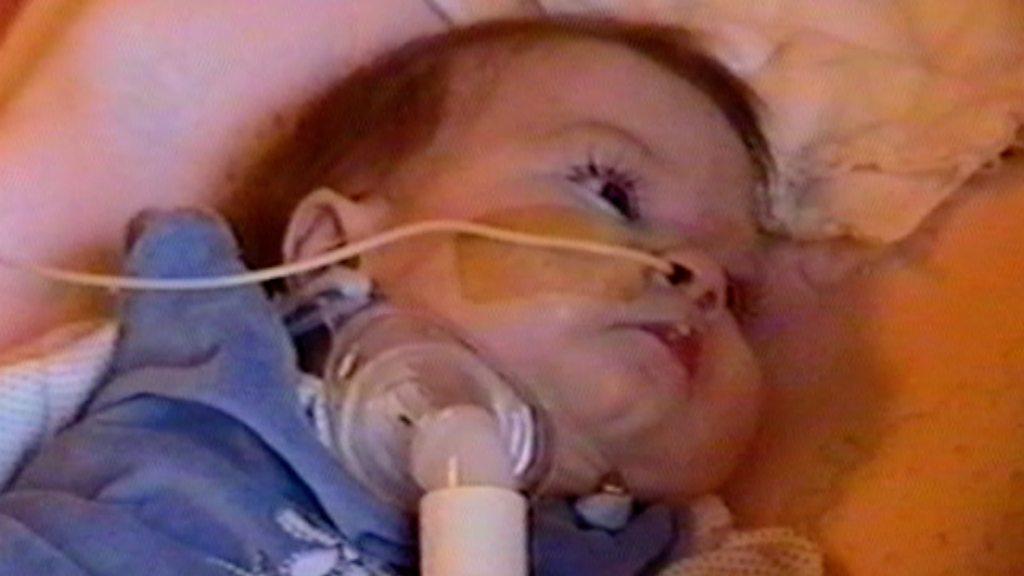Elizabeth Dixon death: The 20-year battle for answers
- Published
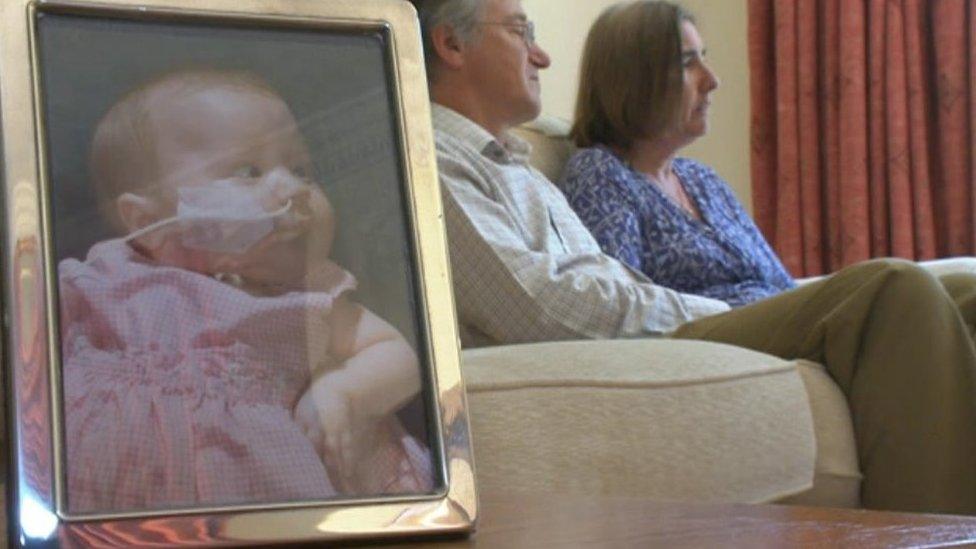
Anne and Graeme Dixon have refused to give up in their pursuit of answers over their daughter's death
The government has apologised to the family of Elizabeth Dixon for a "harrowing and shocking series of mistakes" which led to her death 20 years ago.
The inquiry's findings, released earlier, mark the latest stage in a remarkable, determined two-decade campaign by Elizabeth's parents, Anne and Graeme Dixon, to uncover failings by the NHS, the police and other institutions.
"The whole thing has taken over too much of our lives," says Graeme, 62, an electronics engineer.
Anne, 57, says the sight of a police car, or an image on the television, can bring the bad memories flooding back.
"We think about it every day," she adds.
The couple, from Church Crookham in Hampshire, has an encyclopaedic knowledge of dates, places and names from the past 20 years.
Elizabeth was pronounced dead 10 days before her first birthday
Elizabeth was born prematurely at 32 weeks at Frimley Park Hospital in Surrey in December 2000.
Anne says her baby was "distressed, mottled and looking awful" but the parents were told their daughter was doing fine.
However, staff had failed to spot that the infant was suffering from high blood pressure.
'Catastrophic error'
When Elizabeth was two weeks old, medics belatedly recognised the problem and decided to transfer her to Great Ormond Street Hospital in London, where her blood pressure was immediately lowered.
This was a catastrophic error, according to Dr Malcolm Coulthard, a retired paediatrician who reviewed Elizabeth's case.
He said: "If she hadn't been brain damaged by the extremely high blood pressure she was allowed to sustain at Frimley Park, she would almost certainly have been brain damaged by the way it was rapidly dropped at Great Ormond Street."
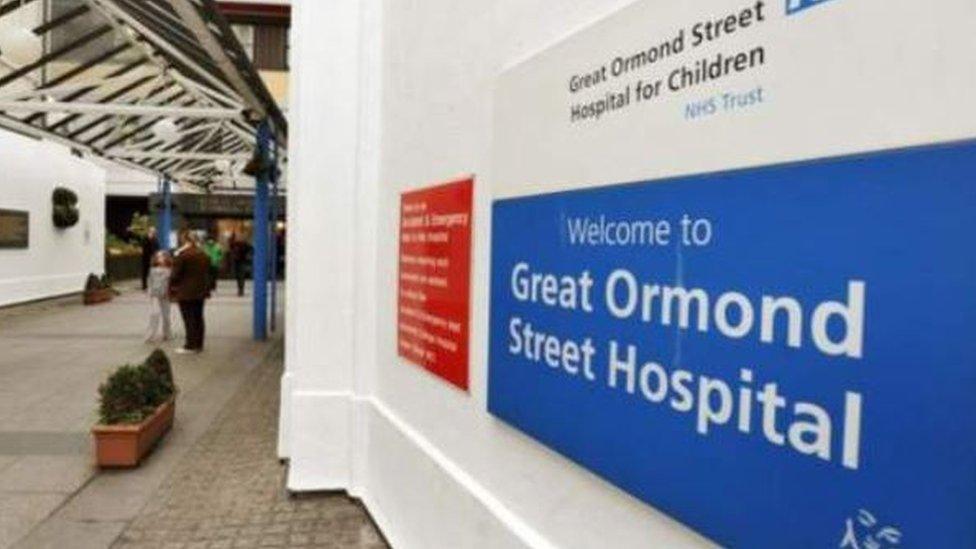
Elizabeth Dixon was transferred to Great Ormond Street Hospital for further treatment after she was born
They diagnosed the baby with neuroblastoma, a rare but non-fatal cancer.
The oversight left Elizabeth severely brain damaged and needing a tracheostomy tube.
Ten months later she was transferred from Great Ormond Street to Naomi House, a hospice near Winchester, ahead of her return home with a round-the-clock care package.
The local NHS chose care provider Primecare, assuring the family that specialist nurses would be provided.
But less than a week after she came home, Elizabeth died.
'Immediately suspicious'
The nurse on duty that night in December 2001 woke Anne and Graeme shouting: "Oh my god, Lizzie. Oh my god."
Anne desperately tried to save her daughter, but she was unresponsive.
Paramedics rushed to the house and took Elizabeth back to Frimley Park Hospital but could not revive her.
She was pronounced dead 10 days before her first birthday.
In an extraordinary turn of events, Anne and Graeme were driven back home holding their dead daughter in the car of Dr Michael Tettenborn, who was responsible for her care.
Also in the vehicle was Joyce Aburime, the nurse who spent the night with the baby and who travelled to the hospital with the family.
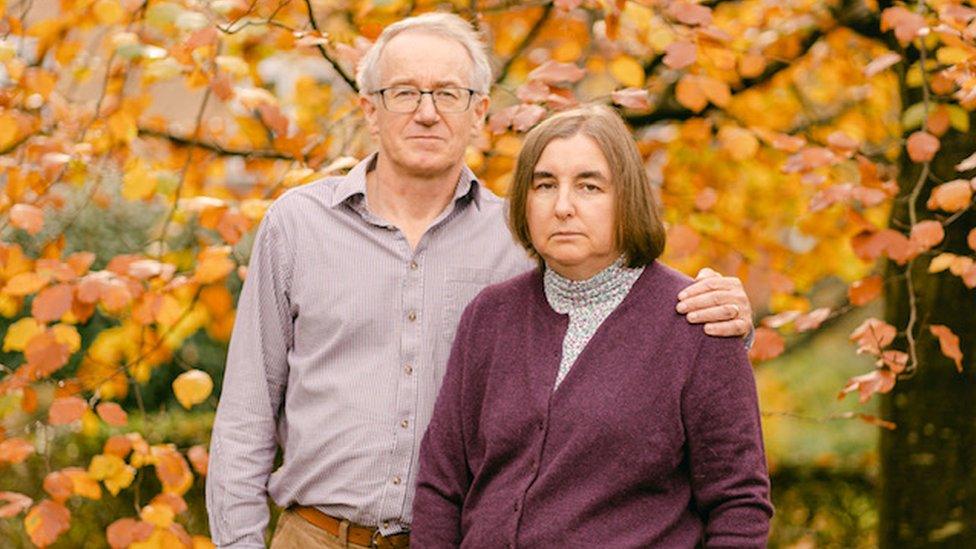
Anne said her "health has been destroyed" and the ordeal has made her lose "trust and faith in people"
Anne says when they arrived home the consultant "just told us to get out of the car".
"He literally didn't step out of the car, and help us out with our dead daughter. He left us on the drive.
"It was a nightmare. An awful experience," she adds.
Anne and Graeme were immediately suspicious of Ms Aburime, and shortly after they got home, their worst fears were confirmed.
Anne took the tracheostomy tube that Elizabeth had been using, held it up to the light and saw there was a blockage in it.
Strip-searched
Dr Tettenborn would insist that Elizabeth died of natural causes as a consequence of her cancer and that there was no need for a post-mortem examination or inquest.
But the Dixons, who by then were raising their second daughter Jennifer, would not give up.
In 2005, they told Hampshire Constabulary what happened and officers concluded that Ms Aburime and a Primecare manager had a case to answer.
However, after further inquiries, in 2006 it was decided charges could not be brought.
Incredibly, police sought an expert opinion from a doctor who worked at Great Ormond Street, a place where the family felt Elizabeth had been failed.
His conclusion was that natural causes could not be entirely ruled out.
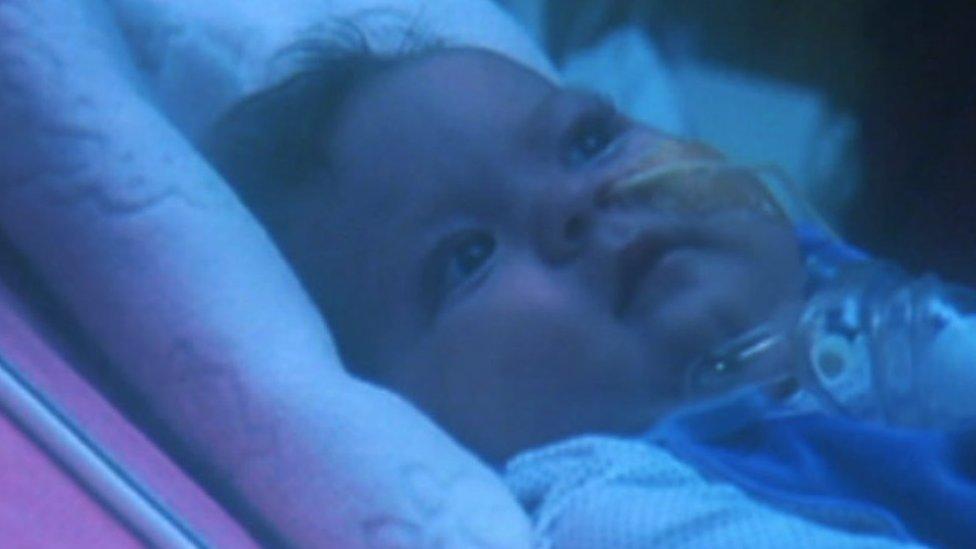
The police inquiries finally led to an inquest in which the coroner concluded that "as a result of a failure to clear her tracheostomy tube, she asphyxiated".
By this time Ms Aburime, who had no experience of caring for children or changing tracheostomies, had been struck off by the Nursing and Midwifery Council.
Despite this progress, Anne and Graeme still thought the truth had not been fully revealed.
They felt relevant witnesses from the NHS and the care agency had not been called.
Their own inquiries continued, which in 2011 led to Anne being arrested and strip-searched by Hampshire police.
Suspecting her of harassing an officer that investigated the case in 2005, police took her to a station in Basingstoke where she was held for more than 10 hours.
She was never charged and the police's heavy-handed tactics led them to admit that Anne had been unlawfully arrested.
'It's been devastating'
"I was really, really terrified," she says. "The custody guy was screaming his head off at me, very abusive.
"When they took me to the cells, I saw all the others were empty so I knew nobody could hear me if they did anything to me."
In 2014, a joint investigation by NHS England and the Care Quality Commission was launched, but NHS England quickly pulled out.
A year later the then Health Secretary Jeremy Hunt ordered an independent inquiry, saying the Dixons had been "passed around the system for far too long".
The publication of that investigation is a major step forward for the family, but their campaign to ensure there is nationwide learning from Elizabeth's care will continue despite the personal toll its taken.
"It's been devastating," Anne says.
"My health has been destroyed. It's impacted my mental health, my trust and faith in people.
"I fear for my daughter growing up in this world."
- Published26 November 2020
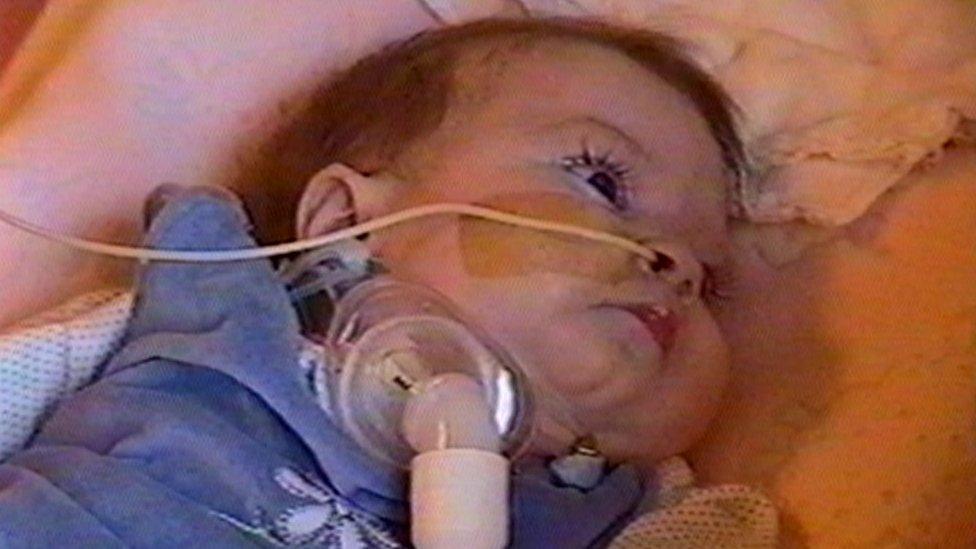
- Published26 November 2020
